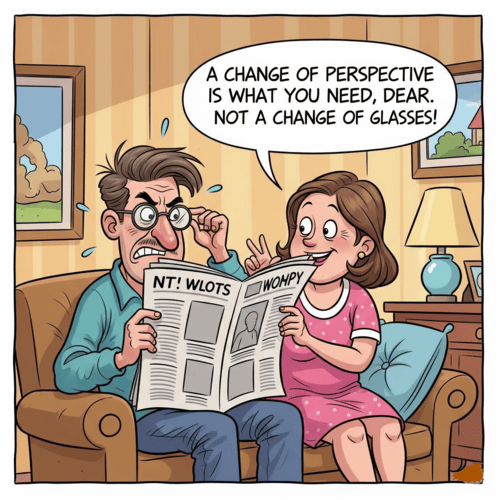Biblical Gender Interpretations: Complementarian vs Egalitarian Views
Biblical Gender Interpretations: Differing Takes on Scripture
As we navigate the complementarian-egalitarian debate, it’s crucial we turn to the ultimate authority—the Word of God. Both perspectives claim biblical support for their stance on gender roles in the church and home. However, their interpretations and applications of key passages differ substantially. In this post, we will explore how complementarians and egalitarians understand and apply the pertinent Scriptural texts.
Creation Order (Genesis 1-3) Complementarians point to the creation order in Genesis as establishing God’s design for gender roles. The fact Adam was created first, with Eve being formed as a “helper” (Genesis 2:18), implies a leadership role for husbands/men—albeit, that of servant leader. Egalitarians, however, would argue the word “helper” denotes co-labourer, not subordinate.
Views on the Curse (Genesis 3): Both camps also debate the implications of the curse/consequences in Genesis 3. Complementarians generally interpret Genesis 3:16, which states “Your desire will be for your husband, and he will rule over you,” as prescribing a hierarchy in which the husband has authority over the wife. They view this as a consequence of the fall, but one that establishes male headship as God’s intended order for marriage and the family. Egalitarians, on the other hand, tend to view this verse as a description of the distortion of relations between men and women after the fall, rather than a prescription for gender roles. They argue the passage describes the curse of men ruling over women, not God’s original ideal plan for marriage as an equal partnership. In summary, complementarians see Genesis 3:16 as establishing male authority and headship, while egalitarians view it as describing the tragic consequences of sin distorting previously egalitarian gender relations. This differing interpretation of this key biblical passage is central to their contrasting perspectives on gender roles in marriage, family, and often extrapolated to the church and society as well.
Ephesians 5:22-33 This passage on marriage is pivotal. Complementarians see verses 22-24 calling wives to submit to their husbands’ loving leadership, just as the church submits to Christ. Husbands are told to sacrificially love like Christ (vv.25-30). Egalitarians stress mutual submission in verse 21 and would view submission as non-hierarchical.
1 Corinthians 11:3-16 Here Paul addresses head coverings, stating “the head of every man is Christ, and the head of the woman is man, and the head of Christ is God” (v.3). Complementarians see a chain of authority. Egalitarians understand “head” as “source” rather than as having authority over. They view it as a reference to the wife being metaphorically derived from the husband’s side, as Eve was formed from Adam’s rib (Genesis 2:21-23). The term “head” is understood by egalitarians as highlighting the chronological and material origins of wives from husbands.
1 Timothy 2:11-15 A key text where Paul doesn’t permit women “to teach or to exercise authority over a man” (v.12). Complementarians take this as prohibiting women from primary teaching/leadership roles in the church. Egalitarians suggest this was contextually limited.
Other Relevant Passages Complementarians also point to texts like 1 Corinthians 14:34-35, Colossians 3:18-19, Titus 2:3-5 as prescribing gender distinctiveness. Egalitarians note examples of female leaders such as Deborah, Priscilla and Phoebe as indicative of the fact that service/ministry wasn’t restricted by gender in Galatians 3:28.
Biblical Gender Interpretations: Ultimately, principles of interpretation play a key role. Complementarians tend to take a plain meaning of Scripture as prescriptive for all contexts, while egalitarians are more inclined to interpret descriptive passages as specific to the culture of the time. Complementarians believe interpreting Scripture the way egalitarians do regarding “head” meaning “source” rather than authority is dangerous, as it could open the door to reinterpreting even clear verses about core doctrines. For example, complementarians argue that if verses about husbands being the “head” are not taken at face value about authority, then verses indicating Christ is the only way to salvation could also be reinterpreted in an allegorical or non-literal sense. As such, many complementarians see the egalitarian hermeneutic as a slippery slope that undermines a high view of biblical inerrancy and authority.
As we’ve seen, sincere believers can look at the same Scriptures and arrive at different conclusions based on interpretive lenses. In our next post, we’ll explore the practical ramifications of each view. But it’s vital we all study Scripture diligently, seeking to rightly understand God’s best for our roles and relationships.
Related Reads
Editor's Pick

Does Ocean Salt Content Prove a Young Earth?
A COMPELLING LOOK AT MARINE CHEMISTRY AND EARTH’S TIMELINE The Salt Question That Challenges Deep Time: If Earth’s oceans have [...]
Noah’s Flood: Where Did All the Water Come From? And Go?
The question hits every Bible-believing Christian at some point: “If Noah’s flood covered the whole earth, where did all that [...]

No Marriage in Heaven? What Does Mark 12:25 Mean?
“Will I see my spouse in heaven? Will we still be married?” These questions pierce the heart of every Christian [...]

The Terror of Meeting God: What Isaiah 6 Reveals About Divine Holiness
WHEN ‘WOE IS ME’ IS THE ONLY PROPER RESPONSE TO A GLIMPSE OF GOD Picture this: You’re a prophet of [...]

Is the Holy Spirit Present in Unbelievers? The Biblical Answer
Can someone who doesn’t believe in Jesus Christ have the Holy Spirit living inside them? This question strikes at the [...]

The Gap Theory Exposed: Why Embrace a Young Earth?
The Gap Theory proposes there’s a vast time gap—millions or billions of years—between Genesis 1:1 (“In the beginning God created [...]

Rethinking Sickle Cell Anaemia: A Case for Intelligent Design
Sickle cell anaemia presents what many consider evolution’s strongest card—a genetic condition that causes suffering yet provides protection against malaria. [...]

‘Bad’ Design: Flaw in Nature Or Flaw in Our Perspective?
When the Eiffel Tower was first proposed, critics called it a monstrous eyesore that would ruin Paris forever. Today, it’s [...]

The Problem of Divine Absence: How Do Believers Cope?
WHEN GOD SEEMS FAR: THE GREAT DISCONNECT Ever wondered why God seemed so close to Joseph in his Egyptian prison, [...]

Is ‘Gay Christian’ a Biblically Acceptable Identity to Have?
THE QUESTION OF IDENTITY IN BIBLICAL PERSPECTIVE The term “gay Christian” has become increasingly common in contemporary religious discourse, representing [...]
SUPPORT US:
Feel the Holy Spirit's gentle nudge to partner with us?
Donate Online:
Account Name: TRUTHS TO DIE FOR FOUNDATION
Account Number: 10243565459
Bank IFSC: IDFB0043391
Bank Name: IDFC FIRST BANK







